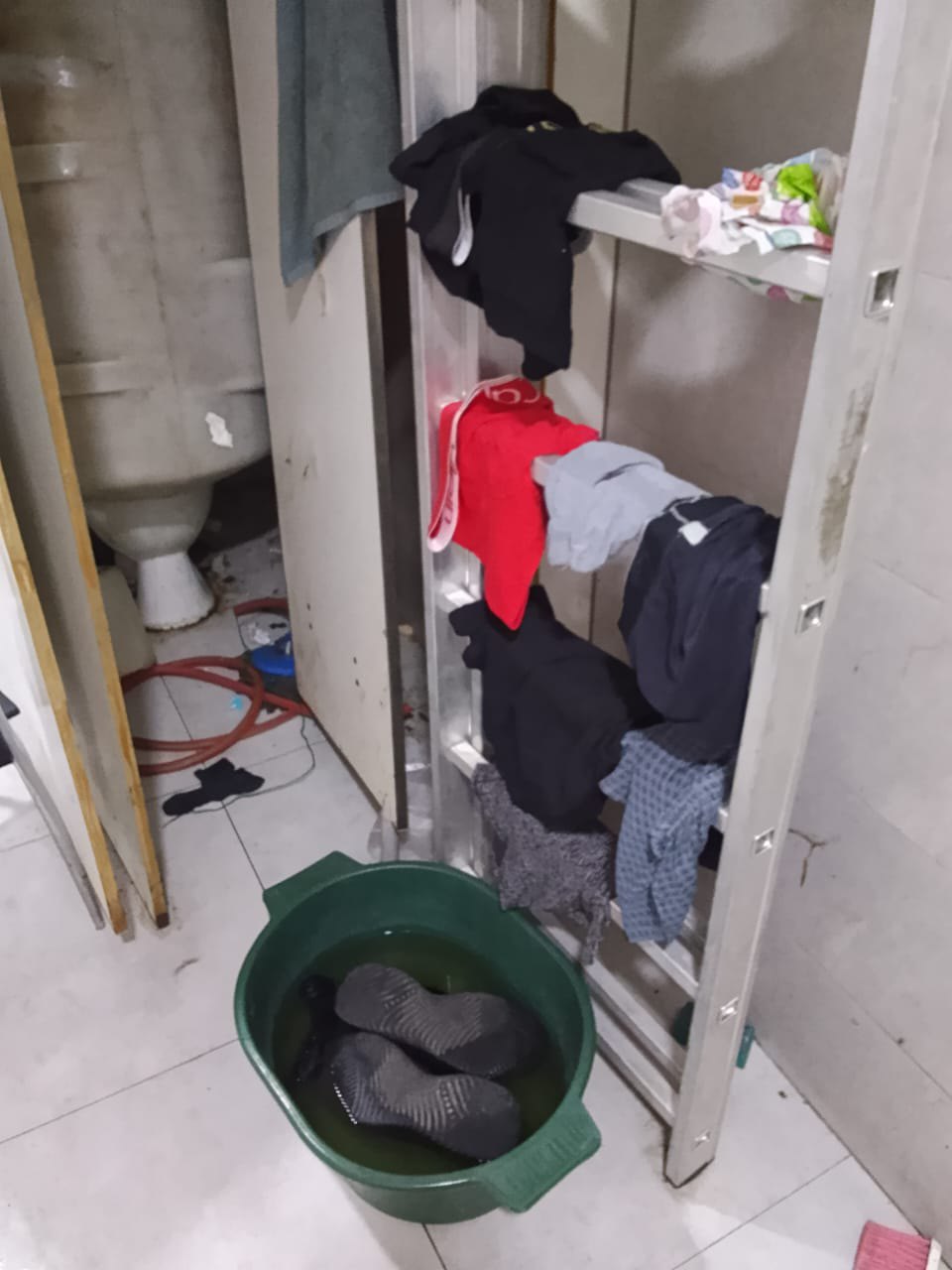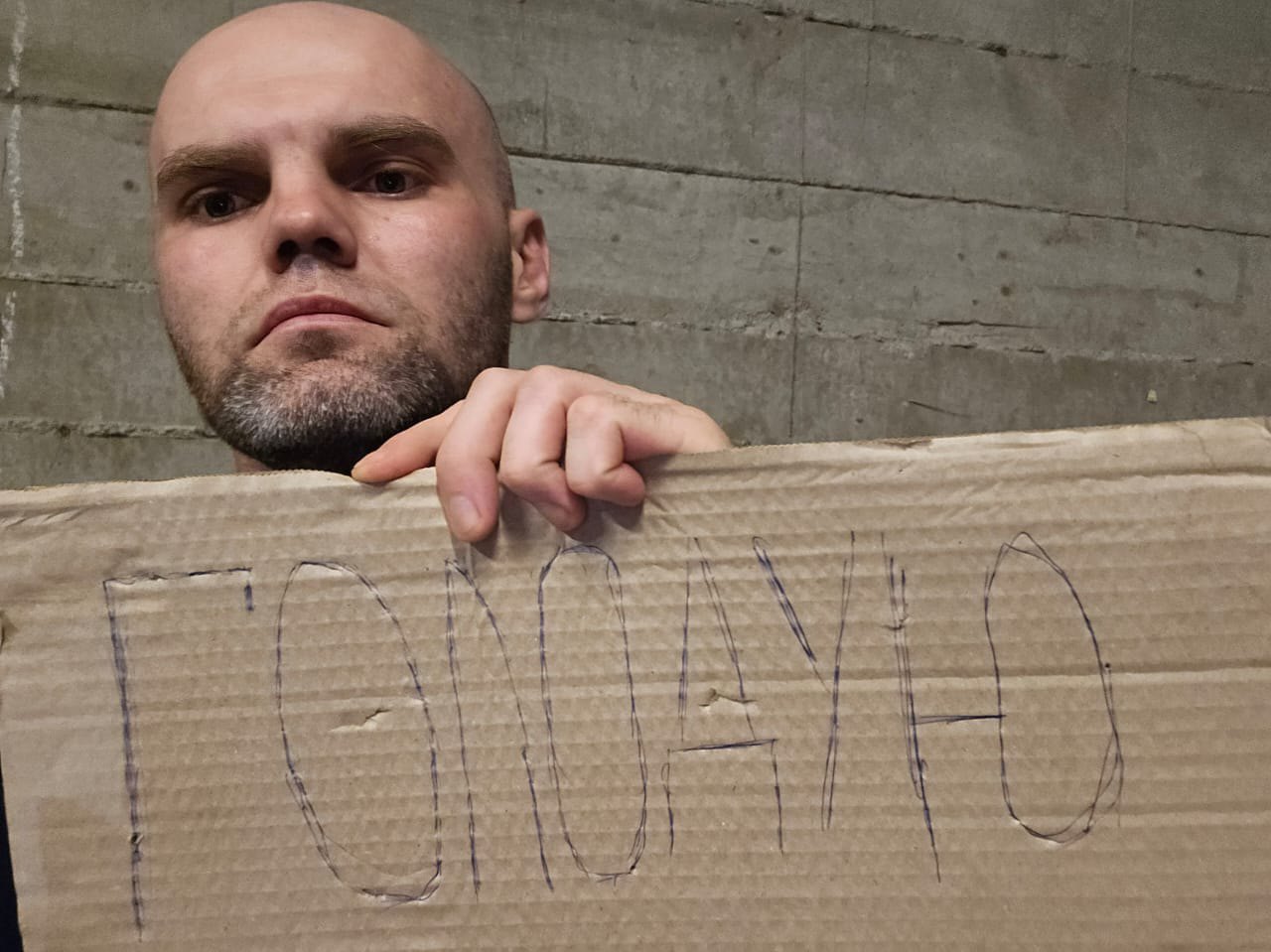
The Foreign Minister Andriy Sybiha noted that in June of this year, the number of Ukrainian citizens deported by the Russian regime to the border with Georgia increased. Most of them are people who were forced to serve ‘punishment’ in Russian prisons. Some of them do not have Ukrainian documents after serving in Russian prisons.
However, among them are those who were deported for refusing to obtain a Russian passport. As reported by Alyona Lunyova, advocacy director at the ZMINA Human Rights Centre, if a person residing in the occupied territory does not regularise their legal status by 10 September 2025, the Russian Federation has granted itself the right to expel such a person from its territory and from the temporarily occupied regions. This is how Ukrainians end up in the buffer zone of the Verkhniy Lars checkpoint — Dariali border crossing point in Georgia.
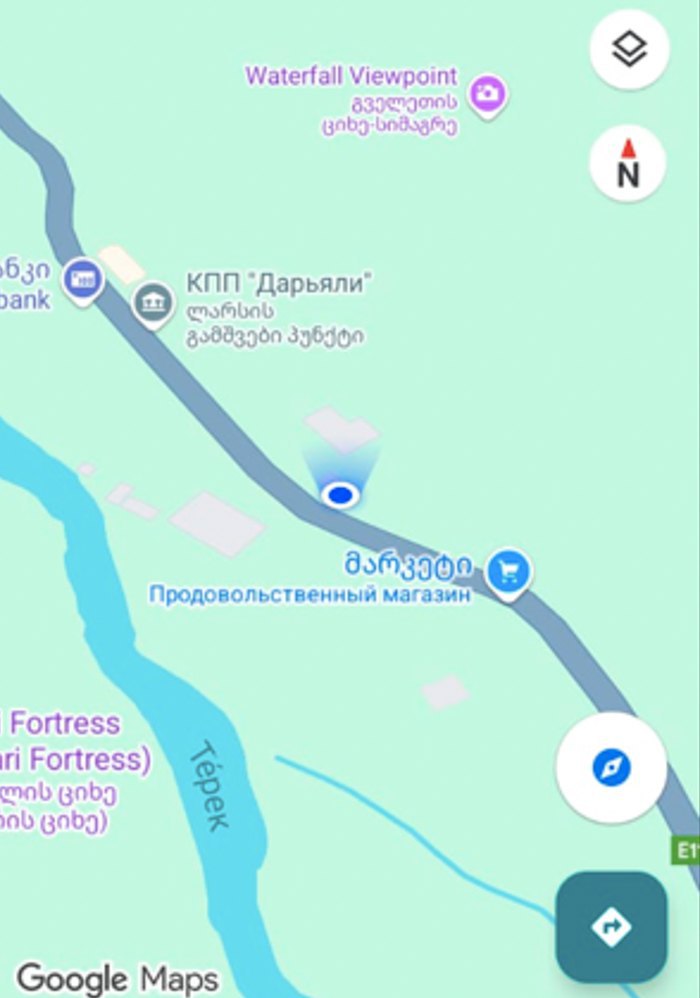
He went to work and ended up in prison
Serhiy Zakharchenko arrived at the Verkhniy Lars checkpoint on 7 June 2025. This was preceded by a story that lasted seven years. The man came to Russia in 2018 to work, where, according to him, he was unjustifiably accused of drug trafficking.
"In fact, I had nothing on me; the drugs were “found” during a search. I did not admit guilt, and I was tortured. Eventually, the Russian court still handed down a sentence of seven years in prison. I served my sentence in Labytnangi from 5 May 2018 to 30 April 2025. All this time, I never stopped fighting," he says.
The man said that he had appealed to dozens of organisations and state institutions to help him return home. In 2020, he filed a request for extradition — to serve his sentence in Ukraine — but it was denied.
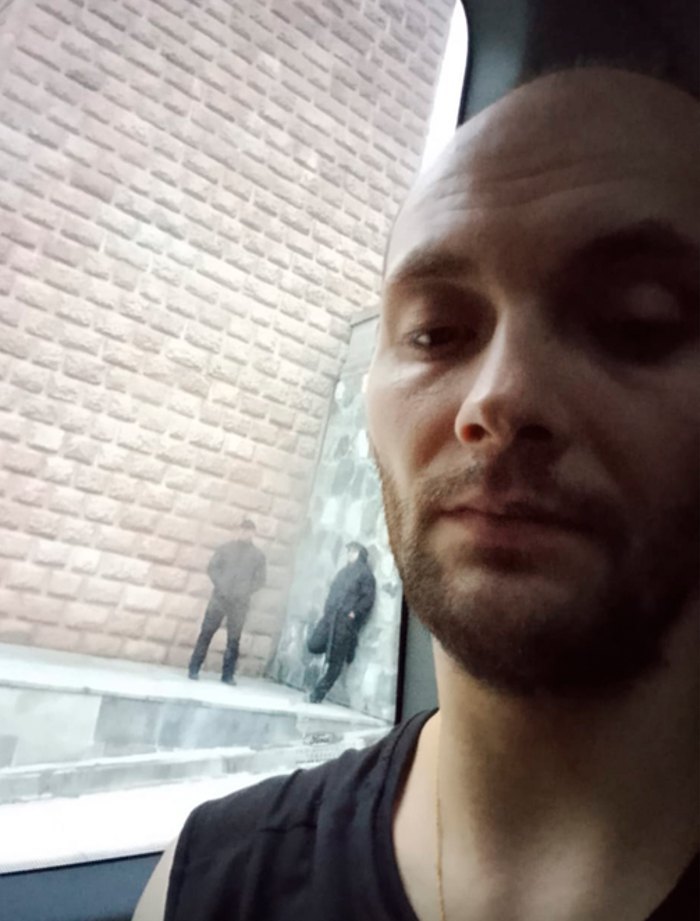
Other migrants were sent home, but Ukrainians were held for a month in a ‘migration prison.’
After completing his prison term, Serhiy was placed in the Centre for Temporary Detention of Foreigners in Salekhard, where he stayed for more than a month — until 5 June this year.
He associates his stay there with yet another punishment after many years of imprisonment.
‘This centre is a closed territory where you have no right to a telephone, letters or visits. Your documents are taken away. And you, an adult, immediately become a nobody — without a country, without a name, without protection. They don't ask who you are, where you're from, what happened to you,’ he says.
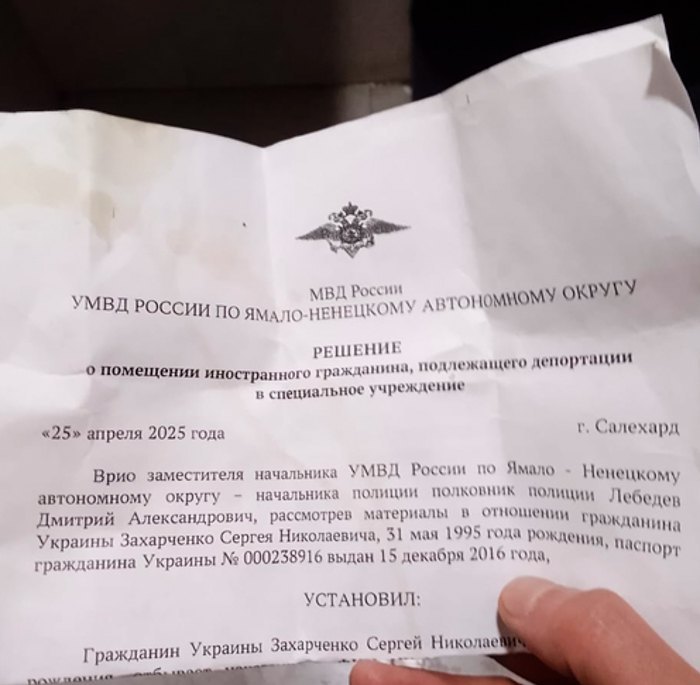
Four people were placed in each cell. They were fed, but not taken out for fresh air. There was no access to medical care.
“The air in the cell was heavy. Only through the cracks in the bars could you get a breath of fresh air. After a while, you no longer understand whether it is night or day outside. Constant waiting, uncertainty, anxiety... I prayed that someone would find out that I was here. I am alive," Serhiy recalls.
He emphasised that migrants from other countries were sent home at the expense of the Russian Federation, while Ukrainians were held without explanation.
“When someone was released or transferred, I always asked them to tell my family where I was,” he said.
From one unknown to another: two months in the 'buffer zone'
On 5 June 2025, Serhiy Zakharchenko was deported from the Russian Federation to the Russian-Georgian border. For almost two months now — since 7 June — he has been in the buffer zone between Russia and Georgia.
“Me and two other men were taken by minibus to the Russian border. There, they looked at our documents, asked who we were and where we were from, and then took us to the Georgian border. The police were already waiting for us there. They took our fingerprints. I showed them my documents, but they said they didn't care and wouldn't let me into Georgia," Serhiy said.
Serhiy was not allowed into the country on the grounds that he could pose a threat.
However, the man says that there are other Ukrainians with him at the checkpoint who have not been convicted in Russia but have been deported by the aggressor country and are also not being allowed to pass.
“Georgia won’t let me in, even though I’m Ukrainian. I have a valid Ukrainian internal passport and other documents, and I pose no threat. Here, in the buffer zone, there are almost 100 Ukrainians like me. People from Donetsk Region, Crimea, Luhansk Region and other temporarily occupied cities. Some have serious illnesses and disabilities," he says.
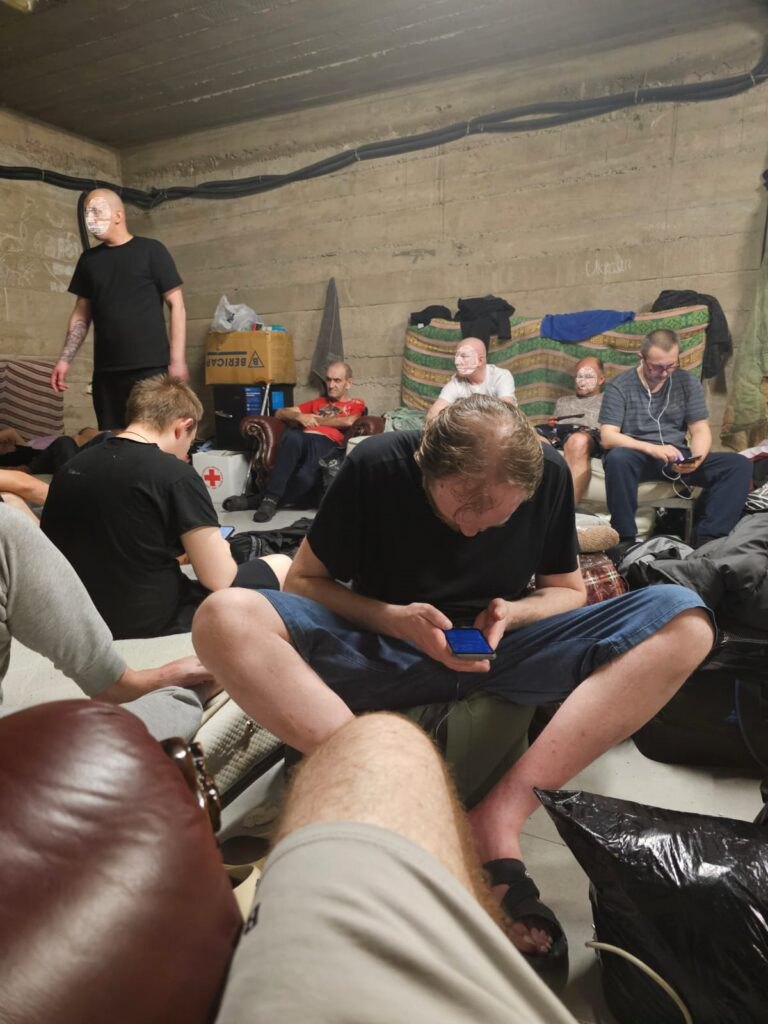
Held in a basement with inhumane conditions
The basement where Serhiy is being held with other Ukrainians is not equipped for long-term stays and is not designed to accommodate so many people. There are 18 beds for 100 people.
According to Serhiy, “we have to sleep in shifts. Two people can sleep on one bed at a time. There are also seven women being held here, but they are kept separately and in very poor conditions. It’s damp everywhere, everything is wet.”
Volunteers bring food to the Ukrainians. Serhiy says that they have fruit, vegetables and porridge, and they cook for themselves. Georgian security forces sometimes escort them to the shop on the second floor of the building where they are being held.
“Some people are able to get money from their relatives through volunteers and buy something. But, basically, we are alive thanks to caring people," the man says.
Ukrainians who find themselves in the buffer zone on the border also have no access to medical care. Representatives of the Ukrainian consulate in Georgia are not allowed to visit them either. Serhiy said that he manages to keep in touch with the consul via email or mobile messengers.
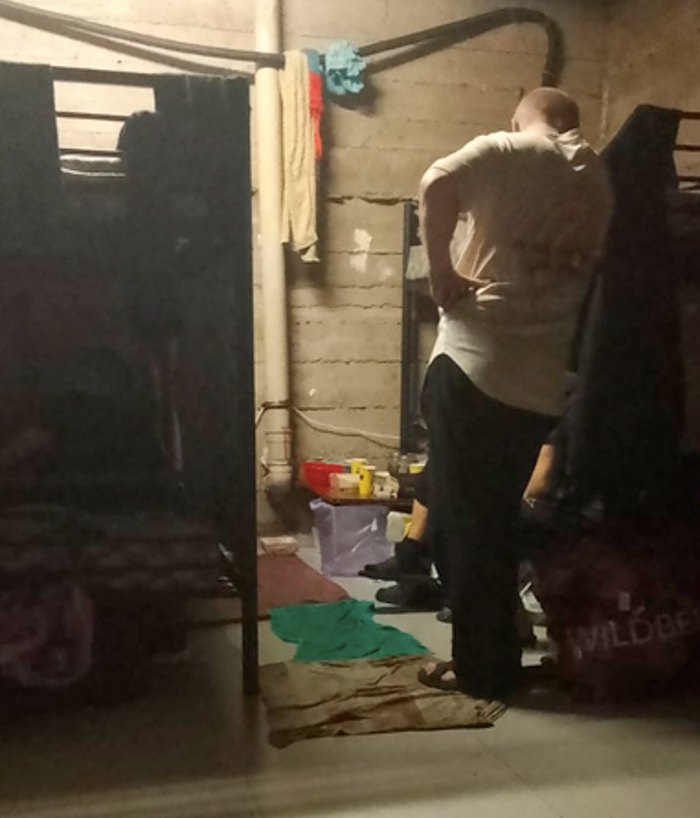
"The consulate has already issued white passports for us to return home. Many of them have already expired and new ones need to be made. Now we are waiting for Moldova to allow transit through its country. In general, during the months that I have been here, only four men who had not been previously convicted have been taken to Ukraine. One of them was taken on 4 August, but he spent three months here," says Serhiy.
According to the NGO ‘Protection of Prisoners of Ukraine,’ on the night of 21 July, Ukrainians deported from Russia, who had been living in the basement for weeks, left the premises in protest, demanding minimum conditions — in particular, access to drinking water. During this protest, one of the men, in despair, cut his neck in protest against the inhumane treatment and the complete lack of response from officials.
Serhiy confirmed this incident. According to Serhiy, one of the deportees tried to slit his throat.
‘He had already bought tickets to fly home, but they wouldn't let him go. He spent the money but couldn't leave. Out of despair, he tried to kill himself,’ the man said.
On 5 August, five deported Ukrainians, who are being held in the buffer zone, announced an indefinite hunger strike ‘in protest against the illegal actions of the Georgian border services and the gross violation of my rights.’
"I also joined this group of protesters. We have been on hunger strike since yesterday," says Serhiy.
He reported that the number of hunger strikers is growing. There are already 15 of them.
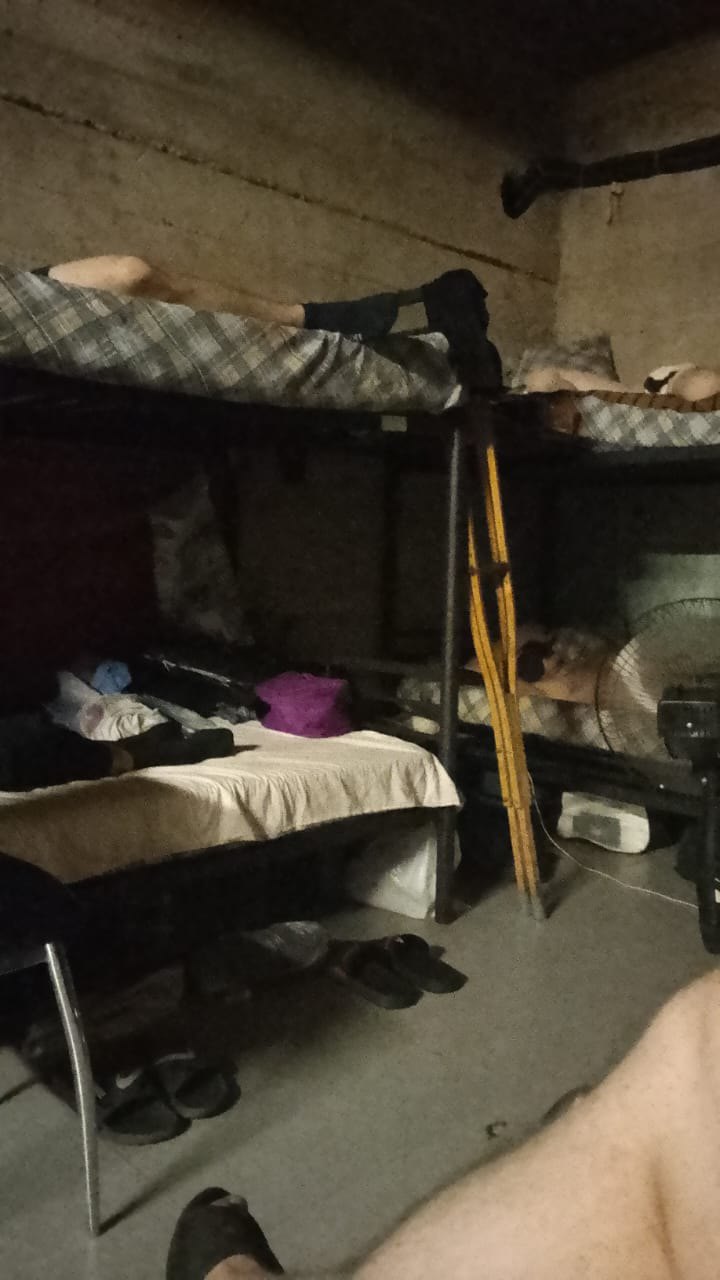
Waiting to return home
Serhiy is in constant contact with the Ukrainian consulate and human rights activists. He says he wrote a request to Moldova and received a response stating that he is not actually prohibited from entering Moldova, but that the decision on this may be made taking into account many factors.
‘Every day I wait to return home. Not only me, but also other Ukrainians who find themselves between two countries, like slaves,’ said Serhiy.
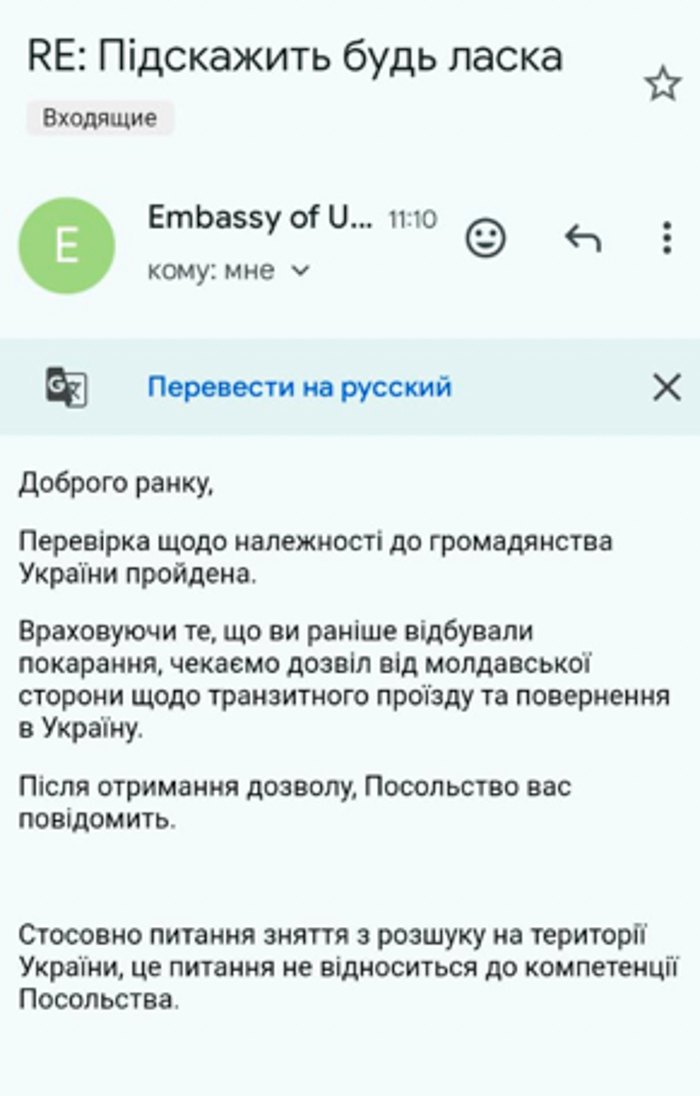
Ukrainian consuls demand access to citizens at the Dariali checkpoint
LB.ua sent a request to the Ministry of Foreign Affairs of Ukraine regarding the situation with Ukrainian citizens being held at the border between Russia and Georgia. Here is what the press service of the Ministry of Foreign Affairs replied:
Since the second half of June 2025, the Russian side has intensified the deportation of Ukrainian citizens across the border with Georgia, which has led to a deterioration of the humanitarian situation at the Georgian checkpoint Daryali on the border with Russia.
Thanks to the measures taken by the Ministry of Foreign Affairs together with the competent authorities of Ukraine, from the end of June to the present day, it has been possible to organise the departure of 44 Ukrainian citizens from the buffer zone on the Russian-Georgian border.
At the same time, Russia has continued to send a larger number of deportees, which may indicate a deliberate Russian operation. Currently, there are 96 Ukrainian citizens in the buffer zone of the Dariali checkpoint.
Earlier, Ukrainian Foreign Minister Andriy Sybiha publicly appealed to the Russian side to send deported Ukrainian citizens directly to the border with Ukraine. Our state is ready to take its people directly, rather than via Georgia and Moldova. As of now, we note that the Russian Federation is ignoring this appeal, which also indicates Moscow's deliberate desire to create a humanitarian crisis on the Russian-Georgian border.
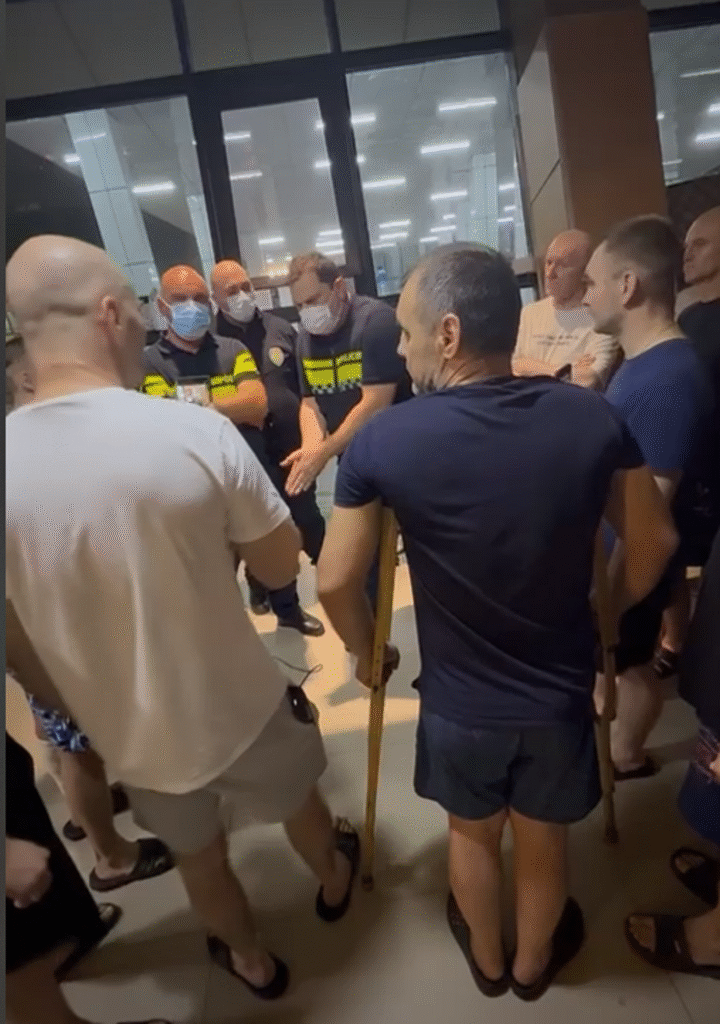
Most of the Ukrainian citizens deported by the Russian Federation to the border with Georgia are people who have previously been brought to criminal responsibility. Among them are both those who served sentences in the temporarily occupied territories of Ukraine and were forcibly relocated to the Russian Federation, as well as Ukrainian citizens who were in the Russian Federation and were convicted of crimes committed there.
The Dariali checkpoint was used to return deported Ukrainian citizens in previous years. The problem became particularly acute in July due to a significant intensification of Russia's expulsion of Ukrainian citizens through this checkpoint in June, as well as Moldova's suspension of transit for persons in this category at a certain stage.
Ukrainian citizens found themselves in an extremely difficult situation in the buffer zone on the Georgian-Russian border, as the Georgian side expressed its readiness to provide organised transport for these citizens to Tbilisi airport only after confirmation from the Moldovan side of its readiness to accept them as a transit country.
In order to resolve the humanitarian aspects of the stay of Ukrainian citizens in the buffer zone of the Georgian border, the Embassy of Ukraine in Georgia is actively working with the Georgian side, involving the International Committee of the Red Cross, the UNHCR and the International Organisation for Migration in Georgia in this process.
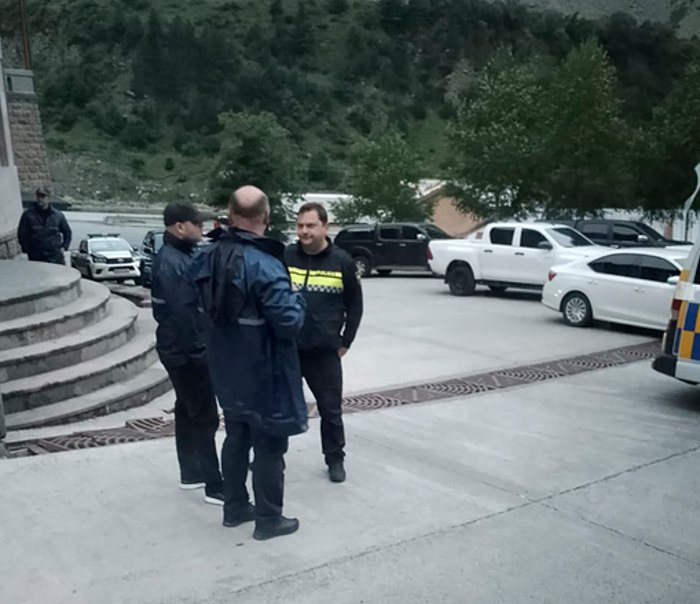
On 5 August, the Ukrainian Embassy in Georgia received an appeal from five Ukrainian citizens who were deported from the Russian Federation and are temporarily detained at the Dariali checkpoint, regarding the start of an indefinite hunger strike with the demand to allow them to cross the Georgian border. Other citizens at this checkpoint are also joining the hunger strike.
The Ministry of Foreign Affairs, with the involvement of the Ukrainian embassies in Georgia and Moldova, as well as in cooperation with the relevant ministries and agencies of these countries and Ukraine, is working to resolve this humanitarian crisis as quickly as possible.
Upon receiving information about the start of the hunger strike, consuls from the Ukrainian Embassy in Georgia immediately travelled to the border to meet with Ukrainian citizens at the Dariali checkpoint and appealed to the Georgian side to grant immediate and unhindered access. The consuls are in constant contact with Ukrainian citizens at the Dariali checkpoint, including those who have declared a hunger strike.
At this time, the Ukrainian side is actively working with both Georgian and Moldovan colleagues at all levels to find the quickest possible solution for the transit of Ukrainian citizens through the territory of Moldova and the return of the next groups of people from the Dariali checkpoint in the near future.
